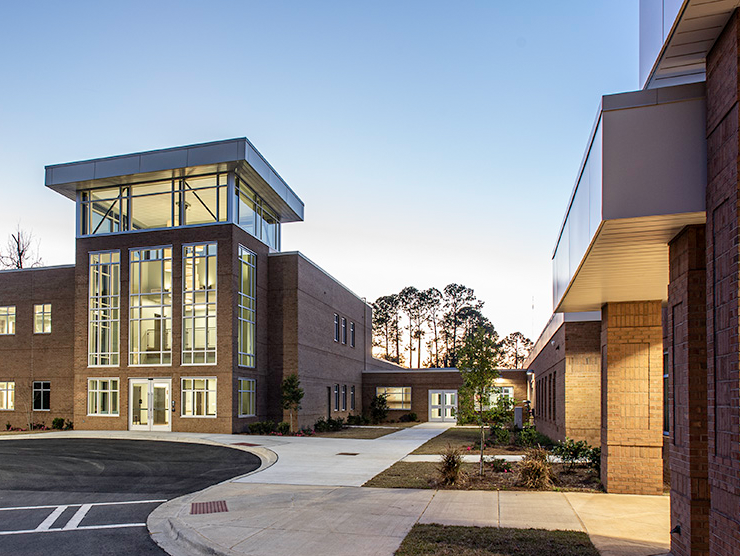Despite operating in an industry fraught with employee turnover, Children’s Hospital Colorado is undaunted. The 115-year-old pediatric hospital is facing the hiring challenge head on, doubling down on investments in its 8,100 employees and providing them a clear path forward. According to CHRO Betsy Rodriguez, employee feedback is crucial to guiding Colorado Children’s talent strategy. “We make data-driven decisions, so we rely heavily on things like our team member experience surveys, as well as turnover and exit data to tell us culture-wise whether we're moving in the right direction or not," says Rodriguez. “All of that together has enabled us to make some really strategic investments.”
With a relatively new hospital in Colorado Springs, it’s essential that Children’s Hospital Colorado continues to listen to the feedback and provide that same employee experience at all its locations. We talked with Betsy to understand how an employee-centric approach helped the hospital become U.S. News and World Report’s #1 children’s hospital in the region.
Recruiting and retaining employees is so imperative in healthcare. What are you doing to attract talent?
Right now, we’re really focused on identifying our core value proposition. To get there, we’re running focus groups, looking at our competitors, and working with a consultant to help extrapolate five or six core values that we need to be selling to potential candidates. In this market we're all fighting over the same people. We want to build a culture that differentiates us from every other hospital and helps us win and retain more talent. A huge piece of that is giving employees reasons to stay, which include everything from care benefits to education support and career pathways. You need those incentives to keep talent in-house and allow them to grow their career with us. Even after an employee leaves us, we still work to bring them back to the organization and fill gaps in areas of critical need. For example, we have what we call our Alumni Program, in which we reach out to former, typically more experienced nurses and respiratory therapists and see if we can entice them to come back.
Working in pediatric healthcare is extremely labor intensive, and it can be difficult to find a balance between career and family. What are some of the programs and benefits you have in place to support your working parents and other caregivers?
We have quite a few. Most of our team members are under the age of 35 and 82% of them are female, so they’re right in those prime family planning years. For our working parents we offer a large on-site childcare center with a capacity of 248 children. We primarily recruit and employ staff from three counties, two of which are childcare deserts – meaning there are more than
three children for every childcare seat. Our center provides convenient care for children of our employees, but also adds inventory to community.
Additionally, each employee gets 100 hours of back-up child and elder care per year at centers or in-home. This is particularly important for our team members who work hours outside the typical 8-5 Monday-Friday schedule. That allows us to really cover all our bases when it comes to family care and takes a lot of the stress away from our staff so they can concentrate on work. In 2022 alone, back-up care saved 940 workdays for employees who would have otherwise missed work due to an inability to find care for their child or relative.
We’ve also added enhanced fertility benefits to our health insurance programs, which is a very positive development. The program supports team members and their families with everything from fertility issues to high-risk pregnancies.
Pediatrics can take a major emotional toll on employees, as well as a physical one. What else are you doing to support your staff? How are you getting employees help at the point of need?
Our executive team, in particular, our CNE has made a big investment into resiliency programs. These programs help build resiliency and also provide on-site mental health care to employees when there is a trauma or other critical incidents. One of these programs is through a vendor that specializes in dealing with first responders and healthcare workers, CODE-4. This is something that’s beyond what you’d see in a traditional employee assistance program. What they do is provide counseling, consulting, and training services to frontline healthcare workers and emergency responders. Mental health is a major concern for frontline workers, especially in the past several years, and we’ve unfortunately had a few events that necessitated having on-site counseling available right away. Programs like CODE-4 have been extremely beneficial to our employees and offer the immediate care that they need when a trauma occurs. In addition, we’re working really hard right now to put programs in place for our employees wherein they can get immediate access to a mental health professional if they have a more acute need for counseling.
You have a unique program involving medical dogs – could you talk a little about what that is?
As a Children's Hospital, we have an amazing child life department which is unique to pediatric healthcare. Child life specialists are trained to help kids who have either experienced a traumatic event or need to go through a serious procedure, especially if it involves pain. And a big part of our child life department here are our medical dogs who are specially trained to help kids face difficult procedures. On the employee side, we have a prescription pet program. On certain days, we invite our staff to come to the main area of the hospital and spend time with various therapy pets. We’d also love to have a full-time medical dog that is just for the support and comfort of our team members. It's a really important part of our culture for our patients and we want to do it for our team members as well.
Thank you so much to Betsy for taking the time to talk to us.




